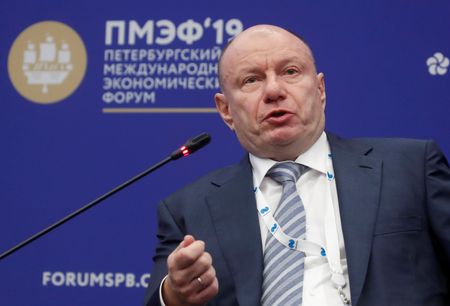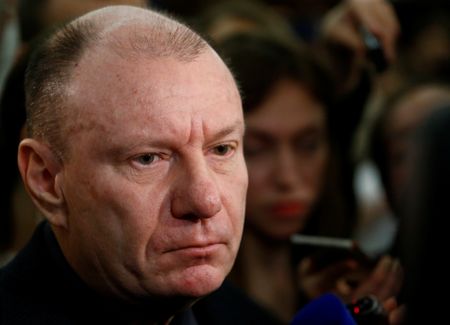(Reuters) – Nornickel boss Vladimir Potanin, one of Russia’s richest men, said on Monday that the metals giant was reworking its strategy and building closer ties with countries such as China, Turkey and Morocco because of Western sanctions on the Russian economy.
Potanin told Russia’s RBC television that the impact of sanctions “does not directly affect the life of the company, its survival, but of course it limits its capabilities, including financial ones, and development of those markets in which it has traditionally been present.”
“Keeping them is more difficult, and new ones are expensive to win. We have to deal with all this,” added Potanin, who is Nornickel’s chief executive and biggest shareholder, owning 36% through his Interros holding group.
Potanin’s comments provided a rare acknowledgement of how Western sanctions over the war in Ukraine are affecting a company of strategic importance to the Russian economy and to global metals markets – even though Nornickel itself is not directly targeted by the measures.
Western governments have refrained from hitting Nornickel, mindful of the disruption to aluminium markets after Potanin’s rival Oleg Deripaska and his Rusal group were sanctioned in 2018.
Potanin said his company, the world’s biggest producer of palladium and refined nickel, was nevertheless affected by the “completely destructive” sanctions because of the impact on logistic chains, payment systems and the ability to purchase new equipment.
Nornickel’s plans to expand into other markets had been disrupted, he said, forcing it to focus its investment policy on Russia and friendly countries.
“Naturally, we find ways out of this situation. We are restructuring logistics chains to more friendly countries. First of all, to China, Turkey, Morocco and other Arab countries,” he said.
Potanin reiterated the view he stated soon after the war began, that Russia should not respond to sanctions by confiscating or nationalising Western assets.
“If some companies leave our country, then instead of applying some kind of confiscation and other harsh measures to them, it is much easier to give the investment community the opportunity to solve this problem on its own,” he said.
“The panic exodus of foreign companies from our market led to the fact that such companies could be acquired by domestic investors on very attractive terms,” added Potanin, who himself clinched several deals in the early weeks of the war, including the purchase of Rosbank from French lender Societe Generale.
Potanin was placed on a U.S. sanctions list last month as part of wider measures targeting people and businesses close to President Vladimir Putin. He had already been targeted by Britain and Canada.
(Reporting by Mark Trevelyan; Editing by Kim Coghill and Gerry Doyle)


